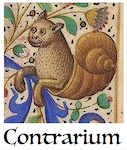Another chapter in a depressing saga
Murder, she wrote — and they rewrote it. “Sensitivity readers” strike again. This time the victim was Agatha Christie. It appears that they removed all mentions to skin colour, race and other physical characteristics from her novels, published by Harper Collins, one of the “Big Five” who, as I mentioned before, control all book publishing in the world.
In the new versions of the famous crime stories, a “Nubian boatman” became just a “boatman”, and Poirot’s comment that someone is “a Jew, of course” was completely removed, along with all mentions of non-English people having “lovely white teeth” or “beautiful teeth”. (Is that offensive? I would think that stereotyped descriptions of English people having “bad teeth” would be worse?)
Please note that none of the descriptions that were removed are in themselves offensive, they are merely… Well, descriptive. Which is what they are supposed to be. But I guess you can’t have even that in this susceptible day and age.
Despite the growth of AI, which is supposedly “stealing all our jobs”, there is a growing number of absurd, unnecessary professions, such as “DEI consultant” or “sensitivity reader”. And yet, I would think that this is one of the rare cases in which AI could probably do a better job — how hard can it be to write a program to filter out “offensive” words and replace them with something else? Even I could do that with a “Find and Replace” command in Word.
Of course, the concept of “sensitivity readers” itself is complete nonsense, because anyone who is offended by words has no business reading books. (And probably doesn’t really read anything longer than social media posts.) I’ve read a lot, including some of the most offensive works in the history of literature, such as H. P. Lovecraft’s early short stories, some of Sade’s works, Céline’s “L’École des Cadavres”, and even part of Hitler’s “Mein Kampf”. Did it turn me into a crazy, unhinged, mentally ill conspiracy theorist? Er… well, maybe, but that is not the point. The point is that if you like to read, you’re not going to be offended by words on a page, especially if they are part of a work of fiction. No serious reader likes editors who think they are smarter than the authors. If you’re a reader at all, you want to read the original work, not a bowdlerized or abridged version. It completely removes the authenticity of the work, and even its historical context, not to mention the author’s original voice, which is the reason we read in the first place. It doesn’t mean that you agree with the author, it just means that you want to read whatever it is that he wrote, not what someone thinks he should have written. We don’t need no stinking sensitivity readers.
This hits home because Agatha Christie was one of my main readings during my pre-teen years, from, say, 11 to 15 (I think at 16 I started reading more “serious” stuff, such as Dostoevsky etc.). I read all kinds of science fiction and detective stories, but Doyle’s Sherlock Holmes, Chesterton’s Father Brown stories, and Agatha Christie were among my favourites.
Now, from Agatha, I liked mostly the Hercule Poirot’s novels. I think I read all of them. I didn’t enjoy her non-Poirot stuff as much, except for a few classics, such as “And then there were none.”
Actually (if I’m allowed a little parenthesis here — see what I did there?) this is a very early case of sensitivity editing. Originally, the British novel was called “Ten Little Niggers”, which even back then was considered somewhat offensive, so this was soon changed to “Ten Little Indians”. But that was eventually also deemed offensive, and so it became “And then there were none”, which doesn’t offend anyone but unfortunately is a bit of as spoiler as far as titles go…
Now, I’ve read the novel decades ago in a Portuguese translation, and until just a few years ago it was still called “Os Dez Negrinhos”. The word “negrinhos” in Portuguese doesn’t have the negative connotations that the English word has acquired. It really just means “little black boys”. However, I’ve heard that recently even the Brazilian publishers had to change the name of the book, because of contractual reasons — basically, the company who owns the rights was afraid of being sued by NGOs, and therefore the name had to be changed in the translations too. Oh well.
Besides the more general attempt to change the past (“who controls the past controls the present”, as per Orwell), I think what is really going on here, under the excuse of “not offending anyone”, is simply an attack on readers, and on reading in general. Not too many people read books these days, and if all books are just going to be rewritten into the same inane, boring, nondescript, corporate propagandistic jargon that is the norm everywhere else in the media, well, then what will be the point of reading, anyway?
You might as well have all books written by AI bots — and read by bots, too, as such books won’t interest anyone else. Which I suspect is the idea. Murdering literature, and getting away with it.




I’ve tried to put you under recommendations — hope it co
co…? But thanks! I should promote this more, but I’m a bit lazy on the promoting part.